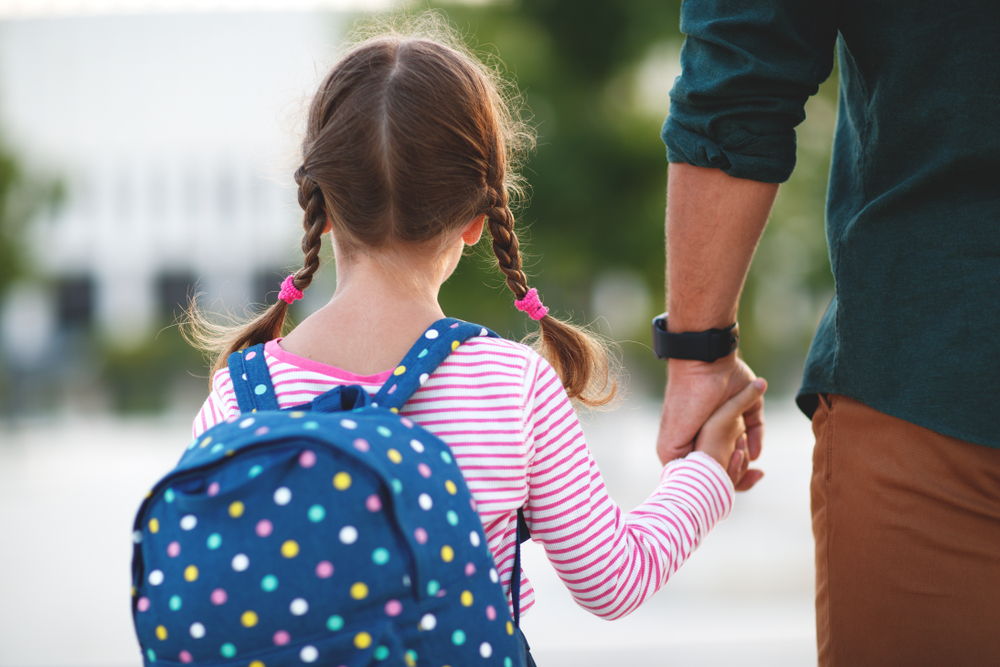Back to School: The Transition from Summer to School Routine

As summer winds down and the back-to-school season begins, many parents find themselves facing unexpected resistance from their children. Complaints of stomachaches, sleepless nights, or a general lack of enthusiasm for returning to school are more common than most would expect. While the transition from summer vacation to the school routine is naturally challenging, there can be deeper reasons why children are reluctant to go back to school.
Summer vacation offers children a break from the structure and expectations of the school year. They enjoy late mornings, relaxed schedules, unstructured play, and time with family and friends, all of which contribute to a sense of freedom and comfort.
Returning to school, however, means waking up early, packed schedules, homework, and classroom rules. For many kids, this shift feels abrupt. The lack of control they suddenly face can be overwhelming, especially if they had a particularly enjoyable or relaxing summer. The more drastic the contrast, the harder the transition can be.
But the resistance can also be a sign of something deeper. It’s important for parents to be aware that some children experience genuine anxiety about returning to school. This isn't just about not wanting to do homework or wake up early, it can reflect deeper emotional challenges.
Look out for these common signs of anxiety in children:
- Frequent complaints of physical symptoms like headaches or stomachaches, especially on school days
- Changes in sleep patterns (trouble falling asleep or waking up multiple times during the night)
- Loss of appetite
- Irritability or mood swings
- Avoidance behaviors, like suddenly not wanting to go to school or clinging to parents
- Expressing fear of being separated from family
For younger children, separation anxiety may resurface, while older children might worry about academic performance, social dynamics, or other stressors.
One of the most painful reasons some children resist going back to school is bullying. Whether it’s physical, verbal, or social exclusion, bullying creates an environment of fear and insecurity that can make school feel unsafe.
Unfortunately, many children don’t readily talk about being bullied. They may feel ashamed, scared of retaliation, or unsure of how to express what they’re experiencing. Instead, they might try to avoid school entirely, use vague excuses, or become unusually withdrawn.
Parents should aim to gently open conversations about school life and pay close attention to any changes in a child’s behavior or mood. Simple questions like, “Is there anyone at school who makes you feel uncomfortable?” or “How do you feel about going back to school?” can help create a space where children feel safe to share.
Here are a few ways to help ease your child back into the school routine:
- Start early: Gradually shift sleep and wake times to match school schedules a week or two before school starts.
- Talk about it: Normalize feelings of nervousness or sadness about going back to school. Let your child know it’s okay to miss summer and feel uncertain.
- Create positive anticipation: Remind them of the exciting parts of school, seeing friends, learning new things, or participating in favorite activities.
- Stay connected: Continue making time for fun and connection after school hours. A consistent support system at home can buffer stress at school.
- Reach out for help: If your child shows ongoing signs of distress or you suspect bullying, don’t hesitate to speak with teachers, school counselors, or mental health professionals.
Going back to school can be emotionally challenging for children. While some may quickly adapt, others may struggle with anxiety, social pressures, or unresolved issues like bullying. Parents and educators have a role to notice the signs, offer support, and ensure that children feel safe, heard, and understood during this transition.
By approaching the new school year with empathy and open communication, we can help children not only return to school, but thrive there.
Want to dive deeper into this topic?
Keep an eye out for the invitation to the upcoming webinar “Raising Resilient Children” with parenting coach Sylvie Ebert on September 16th.
In this session, we’ll explore what resilience truly means, the core pillars that strengthen it, and practical strategies you can apply in your parenting journey. The webinar will feature an interactive discussion and wrap up with clear, actionable takeaways you can start using right away.







